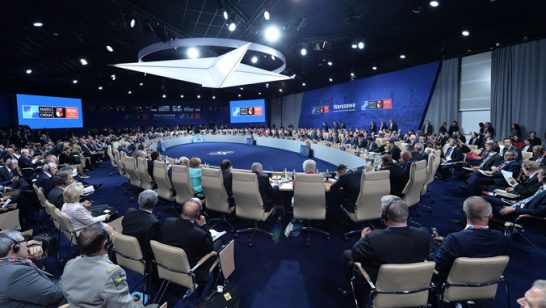
Klaus Naumann Contribution to ELN Meeting
Being asked to serve as a panelist in session 2 which addresses the issue “Perspectives on the posture requirements of NATO’s nuclear policy” I will approach the topic from two different directions, one being the perspective of the former Chairman Military Committee, the other one being the point of view of a commissioner of the ICNND.
For the former CMC NATO the approach is determined by the Lisbon Summit documents and the military requirements.
You all will have read in the excellent backgrounder on Lisbon provided by Simon Lunn and Ian Kearns that NATO clearly stated at Lisbon that it will continue to rely on nuclear weapons as long as nuclear weapons will exist. This means under the most favourable circumstances that NATO will rely on nuclear weapons for the next twenty to thirty years. Regrettably NATO was not as clear on the role and purpose of nuclear weapons. It remains to be seen whether the Alliance will be able to agree on a sole purpose formula at its next summit likely to be held in spring 2012 in Chicago. Then NATO will probably discuss the “Deterrence and Defence Posture Review” mandated at Lisbon.
From a military point of view the driving and solely remaining requirement for nuclear weapons is to prevent any use of nuclear weapons by anyone though deterrence. Hence there should be no objection against a sole purpose declaration. The other heavy weighing Lisbon remit is how NATO will reconcile the unambiguous Lisbon language “ensure the broadest possible participation of Allies in collective defence planning on nuclear roles, in peacetime basing of nuclear forces and command, control and consultation arrangements” and the entirely politically driven desire of some NATO countries to get rid of the few remaining TNW based on their territories. At this point in time I do not see any realistic chance to achieve consensus at 28 on the withdrawal since the continuing necessity of extended deterrence cannot seriously be challenged, neither politically nor militarily. Moreover, the military requirement of deterring the use of some 2000 Russian TNW based west of the Urals and probably to some extent aimed at Europe cannot be denied. The Russians will claim that they need these weapons in order to compensate for NATO’s undeniable conventional superiority which means that any arms control attempt will have to deal with the TNW issue in a comprehensive way encompassing both conventional and nuclear weapons. However, open is from a military point of view whether NATO could apply the sea-based solution being applied in Eastern Asia although it is difficult to ensure broad participation in such a solution but this is an entirely political question.
The present solution of broad participation by using air delivered bombs and dual capable aircraft will run into technical problems at the end of this decade when most of the aircraft will arrive at the end of their life span. The question therefore is how to get as much as possible from the NATO TNW in arms control negotiations while simultaneously shifting to other forms of extended deterrence.
This brings me to the ICNND Commissioner’s point of view. The ICNND saw the necessity of including the US/Russian TNW in the follow-on round of arms control negotiations following the ratification of New START. The ICNND never focused on basing of nuclear weapons as this is a largely irrelevant factor in achieving the objective of further reductions in pursuance of the long-term objective of the total elimination of all nuclear weapons. The point I would like to make from the ICNND’s point of view is that it would be of utmost importance if the forthcoming “Deterrence and Defence Posture Review” contained a sole purpose declaration agreed by all NATO members which, as a minimum requirement, should be identical to the formula contained in the 2010 NPR of the USG. Such a formula would deprive TNW of their present role and would open the door for a new form of extended deterrence provided the Russian Federation were willing to agree on such a sole purpose declaration in a legally binding NATO/RF document as well.
This would in my view be an enormous step towards an improved transatlantic/European stability and it would eliminate any remaining reason for land based TNW in Europe.
The opinions articulated above represent the views of the author(s), and do not necessarily reflect the position of the European Leadership Network or any of its members. The ELN’s aim is to encourage debates that will help develop Europe’s capacity to address the pressing foreign, defence, and security challenges of our time.


